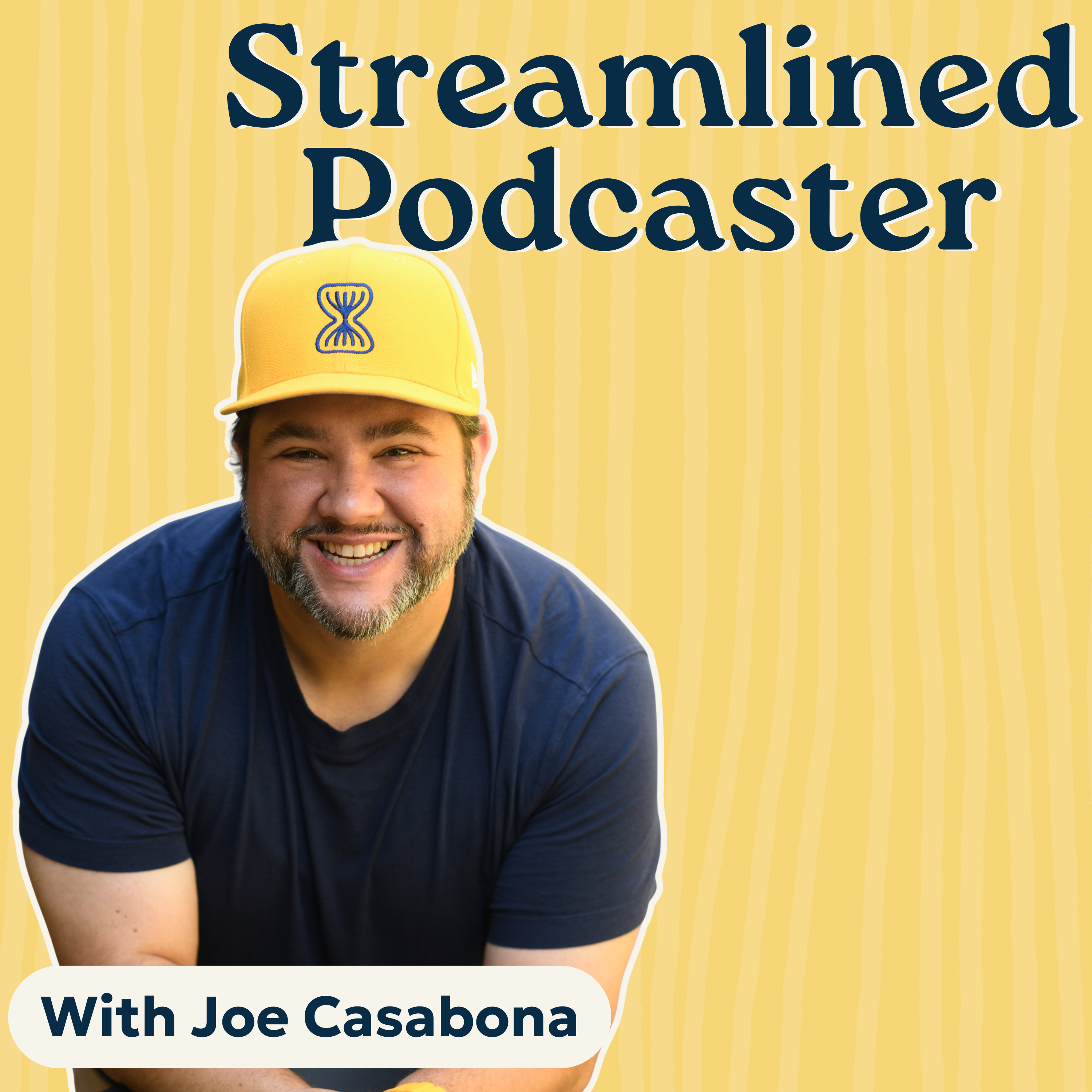
Podcasting Made Simple
Podcasting Made Simple is the premier podcast about podcasting! We’re here to help podcast guests and podcast hosts reach more listeners and grow their income so they can change more lives! Join Alex Sanfilippo and other podcasting industry experts as they share how you can level up on either side of the mic! (Show notes and resources: https://PodMatch.com/episodes)
Podcasting Made Simple
The Truth About Becoming a Successful Podcaster | Alex Sanfilippo
In podcasting, there are 4 main questions asked among podcast guests and hosts. The problem is that these are the wrong questions to ask. As a result, podcasters are being misguided. Thankfully, podcast hosts and guests are just one mindset shift away from achieving success! In this episode, Alex Sanfilippo shares his unconventional answers to the 4 most common questions in podcasting, unveiling the truth! Get ready to understand exactly how to succeed in podcasting on either side of the microphone.
MORE FROM THIS EPISODE: HTTPS://PODMATCH.COM/EP/315
Chapters
00:00 Introduction to Podcasting Essentials
08:07 Understanding Your Why and Audience
15:35 Strategies for Growth and Monetization
Takeaways
You must define your 'why' for podcasting.
Understanding your audience is crucial for success.
Long-term planning is essential in podcasting.
Community support can enhance accountability and motivation.
Focus on serving a niche audience rather than just increasing numbers.
Monetization should be based on genuine connections with listeners.
Keep your podcasting efforts simple and manageable.
Engage in one-on-one conversations with your audience.
Align your podcast guesting efforts with your expertise.
Do things that don't scale to maintain personal connections.
MORE FROM THIS EPISODE: HTTPS://PODMATCH.COM/EP/315
🎟️ UPCOMING EVENT: Podcasting Made Simple Live, our virtual event for podcast guests and hosts! See the details: https://podmatch.com/event. Enter code PMLIVE for free VIP access!
You're listening to Podcasting Made Simple. I started podcasting in 2014. And since then, I have heard the same four main questions from podcast guest and podcast host. And I think these will be the same four questions that are asked into the foreseeable future of podcasting. And I'm gonna share those with you now and today, we're really gonna break these down. Here are the four questions. First off, if you're a host, you're asking one of two things. One, how do I get more listeners? Or how do I monetize my podcast? And if you're a guest, you're asking how do get on more podcasts and how do I get on more bigger podcasts? And you're also asking how do I make my podcast guessing efforts a profitable experience? Hey, my name is Alex Sanfilippo. And if I've not had the chance to meet you, I am so excited to share about this today because these are the four questions that most of us have asked at one point or another, or at least we're all like in the back of our minds wondering, yeah, what's the answer to these things? And I'm really thrilled to dive into these with you today. Before I do that though, I have a few things I want to share because you have to kind of get these four things right. in order to really step into answering these four questions properly. And I'm going to say this, this is an unconventional approach. This wisdom is not mainstream. It's not even accepted by most, but I'm telling you from experience since 2014, this is the right way to do it. And I hope that this really speaks to you today. So I'm gonna share these kind of like four disclaimers, these things that we're gonna start with. I encourage you take notes along the way, because I'm gonna go quick. I got some really high level points here. If you do this right, I believe you can answer these four questions really well. Or if you're just a guest or just a host, the two that apply to you. I'll make sure I make this really work well for everybody. So first and foremost, the four things I want to get into before I answer the four questions. I hope these numbers aren't too weird, right? Four and then four afterwards, but here we go. The first thing, and these are questions I want you to write down and ask yourself. Why am I podcasting as a guest or host? Whichever one you are, or if you're both, write both down. But why am I podcasting? You have to answer this question before you do anything else. If you've ever heard me talk before, this comes up every single time. And that's because I find that most people when I ask them, what's your why for podcasting? because, I haven't really thought about that. That's the answer I get. That's why this comes up almost every time. You have to have a why. So answer the question for yourself. Why am I podcasting as a host or as a guest? I'll tell you what, like for me, I'm a follower of Jesus from the Bible. And because of that, my why goes really deep. It's to love and to serve others. And the vehicle in which I'm doing that is through my podcast and through my software pod match. Notice that I talk about something beyond me. The key to having a really good why is making it about more than yourself. If I just said, cause I want my podcast to have a lot of people listening to it and I want my software company to grow a lot, that's why a podcast is a guest and as a host. That's not big enough. If it ends with us, that is very self-centered. And I find that people who don't do well in podcasting, the ones that are only thinking about them, versus serving and adding value and loving others in the process. Now I'm not saying you need to share my faith or anything like that at all. What I'm saying is you have to say this is gonna be bigger than just me. It's gotta be in service to somebody else. Maybe you have a message that you're like, this needs to get out to the world needs to hear this. That's good. That's what you wanna go into with your why. So again, this first question is why are you podcasting? This is your why. Really take the time to determine this. Number two, the next kind of pre-point here I wanna get into is How well do you know the person or how well do I know the person that I'm serving? How well do I know the person that I'm serving? This is what we call in the biz an avatar, which is just your ideal fictitious listener. For me, I know mine really well. And because I do have PodMatch, I do something that I don't necessarily suggest to everybody, but I'm doing it. So you have freedom to do it as well. I have two avatars. It's better if you can have just one, but because I serve both guests and hosts through PodMatch, I needed two. I have Adam and Tiffany. Adam and Tiffany, I have stories about them, what they do, their background, why they like to listen to podcasts in the first place, or why they are podcasting as a guest or as a host. Like all these things are answered in their short little bios I have. And in addition to that, actually had AI make pictures of them, what I imagine them looking like in my head. That way I can actually visualize a fictitious avatar that is a direct connection to my why, which is who I'm ultimately serving. Notice how one and two tie together, right? So you wanna make sure you take the time to really sit down and say, okay, this is my why. Now who's that avatar? How can I reinforce this why with who I really serve well? Taking the time to do these two things will be a game changer for you in podcasting, but almost everybody I meet in podcasting totally skips this as being like, that's not really important. You need the numbers, right? We don't realize that these things actually tie to that. And I'll get into that as I answer the four main questions you have today after these next two points here. Number three is, do I have systems in place to make podcasting a long-term part of my life? Do I have systems in place to make podcasting a long-term part of my life? This is your plan. All the time people are saying, Alex, I'm gonna do 30 podcasts in 30 days. I'm gonna do 100 podcasts in a year. And listen, that's great, that's good. I've been in this since 2014 and that doesn't make me more qualified than anybody else. It just means I've seen some things. And what I've seen is the people who do that burn out a lot faster than they think. Yes, sometimes they make it to their goal and they share about it and they're like, woo, done podcasting, I'm finished, right? And this goes to both hosts and guests. I'm gonna release a hundred episodes this year. gonna do this, right? Don't do more than you think you can do for a long period of time. Here's how I always ask it. Can you do that for five years? The answer every time is the same. People go, ooh, five years? Why five years? can, no, that doesn't make sense. That's too long. Why would anybody do that? People want to do business with and want to learn from people that they know are going to be around tomorrow, right? How many of us have ever brought a product that we're like, eh, this company's probably going on business tomorrow, but I'll take the risk. None of us have ever done that, right? We're looking for the people who say, they're committed. They have a plan, they have a purpose, they have a direction. They know that they serve me. I'm gonna stick with them as well. We have to be able to model that ourselves. And here's the best way I've seen that done, is not over committing. And so for me, when I first got into podcasting, go back to 2014, I had a monthly show, one episode per month that was 15 minutes long. And I was able to commit to that. I did it for four years until selling that podcast and brand and all that. I did miss one because I got really sick for a little bit and my voice was gone for multiple months. Planning matters, right? I should have been more planned out. It was what I learned from that experience of missing one in that four year period of time. You're like, wow, that's amazing. It's only 48 episodes in four years. So don't, don't give me too much credit there. But reality is I knew that's what I commit to. That was my plan. That's what I said I was able to do. So we have to make sure that we commit to that ourselves and it has to be a long-term thing. Podcasting has to be a long-term part of your life on either side of the mic if you're really gonna make it work. I'm very passionate at that point. I don't know if you can tell. Last point here, number four on these kinds of ideas before we get into the main things here. And this is, I in a like-minded community for accountability and motivation? Am I in a like-minded community for accountability and motivation? This is your support structure. We need community in our lives if we're ever going to do anything long-term because it's motivating, because we have built in accountability. If I got these first three things right, so I got my why, my avatar, my plan, but no one knows about it except for me, it's real easy for me be like, and I'm done. No one even knows. No one will ever notice, right? It's better if you're saying, hey, I'm going public with this. Here's what I'm committing to. Here's what I'm going to do. This is how I'm going to do it. Is anyone here doing something similar? Let's motivate each other. Let's talk about this once a week, once a month. Let's see where each other are at. Now you have someone you're like, man, but the person that support group, you know, like in that, in that community I'm part of, like I can't stop now because they know, I told them I'm not going to commit, go public with it and have your support around you. So again, these points are your why they're your avatar, your plan and your support. Getting these four things right, I think allows us to move on to these questions that I brought up at the beginning, the four most common questions in podcasting. So I'm excited to have in this. Hopefully you got some good notes there and here we go. We're to get into this now. Number one, I'm flip this between guests and hosts, by the way. I'm gonna make it valuable for everybody. I'm gonna flip it between guests and hosts so you're not like waiting around for too long. I wanna make sure I'm speaking to everyone here. Number one, hosts, how do I get more listeners? This is the question that hosts always ask. How do get more listeners? I'm not gonna answer this question the way you want to. And if I was live on the stage instead of doing this virtually, people would get up and walk out of the room. I've seen it happen before. I think we're asking the wrong question. What is the purpose of getting more listeners? And I know what people say, because more listeners will give me more credibility. I don't agree with that. Or, well, give me the chance, Alex, to run ads so I can get more money. I don't agree with that. And as a matter of fact, the data shows you that both those things are actually incorrect. You want to how you get more credibility and how you earn more revenue? I'm jumping ahead on another question here, so this is like, get ready, everybody. Kind of gave you a spoiler here. You serve people in a more deep and meaningful way. You find your niche, you find your tribe and you go really deep with those individuals. The story I wanna share about this is I was actually at a conference as an attendee years ago. It's about 6,000 people there, like really big, really prestigious conference to get on a stage. There was a keynote lady there who was sharing and she shared and she had just done so well in business. And I had the opportunity to sit down with her one-on-one and she goes, Alex, I really like you. I'm gonna let you in on a secret. Please don't tell anyone. And that's why she's nameless today. She goes, but I've only ever helped 1,250 people. I'm just really good at helping those people. And that's how I became a nine figure entrepreneur. In my head, I'm like, wait, you only help 1,250 people and you're making nine figures a year? Like, how is that possible? And she's like, Alex, I just got really good at serving those people. She went deep, not saying I need a million customers so I can make a hundred million dollars. No, she's like, no, I'm gonna do really well by this small group of people that I stand for. That is the perspective that we need. The best way, To grow your listenership, now I'm gonna answer the question directly, and to reach more listeners, if you are a guest, is to speak to who you speak to. Speak to who you speak to. That means through the microphone, when you're releasing episodes, speak to those people that you know that you can speak to their hearts. But also it means talk to them. If someone reached out and says, Alex, I really liked your podcast, guess what? They probably are gonna get a phone call with me, because I wanna know why they like it. And do you mirror my avatars? Are you Adam? Are you Tiffany? If you are, I want to hear what you have to say because that helps me understand better how to serve you really well. How do I get more listeners? It's how do I get better listeners is what we need to ask. And then how do I deliver something better for them? The next question here is from guests and that's how do I get on more podcasts and how do I get on more bigger podcasts? Right. I want to be on big podcasts. I want to be on more of them. Right. Again, an unconventional idea here, but like, I don't think that either is really the right perspective. you should get on the right cadence of podcasts, commit to a cadence, maybe it's 12 a year, and then do really good at sharing those episodes, right? You can share them for a month, which is, by the way, very easy. If you're a guest on one podcast a month, you have plenty of content to use for an entire month, even if you want to post every day, because you've said a lot of things in a 30 minute to an hour timeframe. And so just think about that, like you don't need to get on more podcasts, it's not the answer, right? You can just find the cadence that works for you over a five year period and get really good about repurposing it and sharing it. And the bigger audience idea, listen, podcasts with big audience that are celebrity run, they don't necessarily care about who the guest is. And I say this as nice, like as nice as I possibly can, but they're not there for you, right? Like they're there for the celebrity they love. And I've heard so many friends just in my life say this, I I was listening to this podcast the other day. I don't remember who the guy was that so-and-so was interviewing, insert famous person's name, but he said something that was really good. They don't care who the guest was. I will say this, I say this humbly, I've had the opportunity to be on five podcasts to get more than a million people listening every week. And those podcasts, great, and I did a good job delivering on all five of them, but I have gotten less from those I've gotten on some really small podcasts. How is that possible, Alex? They're there for the famous celebrity host that's there. They don't care about me, the guest. But I'm telling you what, if I find a podcast about podcasting, I go on it, I am speaking directly to the person that I can serve really well. If there's 50 people in that room, I want to be there because I can truly add value and serve them at the highest level. So we need to be thinking like it's not just about more podcasts and bigger podcasts. It's about better ones that are more aligned with who you serve directly. All right. Number three, third question. You're back to host. How do I monetize my podcast? The best thing you can do is to bet on yourself. What I mean by that is You don't necessarily want to say, need a sponsor, I need a sponsor, I need someone to some affiliation. That stuff is great and can work, but you're never going to make as much or as big of an impact unless it's something that you actually have that you're directly tied to. Find a true brand partnership if you have to find a very high level affiliate if you have to, but it's better for you to talk to your listeners, find out what they're struggling with and offer the fastest possible solution to that problem that they are facing. Keep it really simple. The simpler you can keep this, the better you can do. The other thing you want to do is to be human and connect with humans. I don't know you, but I like to do business with humans, not with robots. I like to feel like I have a connection to the brands that I'm supporting, that I'm buying from, the people whose courses I'm buying, the people I'm getting coaching from. I want to feel human. So again, keep it simple, which means you don't need to go build an app from day one, right? You don't need this big organization. Start off solving that simple problem as fast as you possibly can. That is the best way to monetize a podcast. And you know what? Better than running ads and better than some of these other things that people go out there and talk about is just ask your listeners for support. You'd be shocked if you say, hey everybody, I'm trying to invest in a new microphone. Can anyone help? I've heard this story time and time again. A single listener will send you a gift card or a microphone that costs three or 400 bucks. it happens, like I'm not even surprised by a story where people are like, that's so touching. I'm like, I knew you were going to say that happens every time, right? If you're adding value in serving and you just ask listeners to be part of that, they're going to love it. They want to be part of it. They want the chance to give back. And if you're a guest and you're saying a very similar question, how do I earn business or make my podcast guesting efforts profitable? Right? Like I want to earn business. I want to be more profitable. Same thing. You got to know who you speak to. You got to know how you help them. And you also need to be very aligned with the type of podcast you get on. You don't want to go on a podcast that's about golf. If you are trying to help people get grants for their nonprofit, right? You don't want to go on a podcast about parenting to talk about like your parenting skills when you're trying to work with people that are in nonprofits to get them grants. You have to be really aligned with it and say, know what, this is the vertical I stay in. There's not many. I'll do one of these a month and I'll do a really good job getting on those shows. We have to be really, really focused. Beyond that, very similar. Keep it simple. Your call to action needs to be simple. When you're on a podcast, keep it straight to the point. Make sure it's what you were talking about. Make sure it's really aligned. Keep it really simple. And the last thing with that is to, like I said previously, be human and make it easy to connect with you as a human. People wanna do business with who they feel like is like them, which just happens to be humans, not this huge structure, this huge system. They wanna feel like they can resonate and connect with you. And so I hope that these answers were helpful for you and actually kind of reframe some of your thoughts around these very common questions in podcasting. And real quick, I'm gonna give a final thought here, which is to do things that don't scale. At some point, our influence does grow, our revenue does grow. You wanna make sure that you find a way and find time to still... have those one-on-one conversations with the person that you say you serve, that ideal avatar, because it reinforces the why. It makes the whole system that you can provide stronger, more powerful, and better for everyone involved. There are a lot of great podcasting people that have come before us, right, me. I think of Pat Flynn. I think of John Lee Dumas. They still talk to listeners. When they find out someone listens, they'll still get on calls with them because they want to make sure I'm not losing touch. That doesn't scale, but it goes such a long way. So again, if you're a podcast guest or host, really hope you take some of this into consideration and reframe some of the thinking that you've had in podcasting, because I think you can do so much better if you really take this unconventional approach. Again, this is how you can really make it in podcasting either side of the microphone. Again, my name is Alex Sanfilippo, and I'm so thankful to have this time with you today. For more episodes, please visit podmatch.com forward slash episodes. Thank you so much for listening. Hey, Alex here. I wanted to give you a gift as a way of saying thank you for staying around till the end of this episode. I put together a list of five things that you can read in less than five minutes that will help you level up as a podcast host, guest, or agency. To see the five things with no email address required, please visit podmatch.com forward slash free. Thanks again for listening. I hope these five things serve you well.
Podcasts we love
Check out these other fine podcasts recommended by us, not an algorithm.
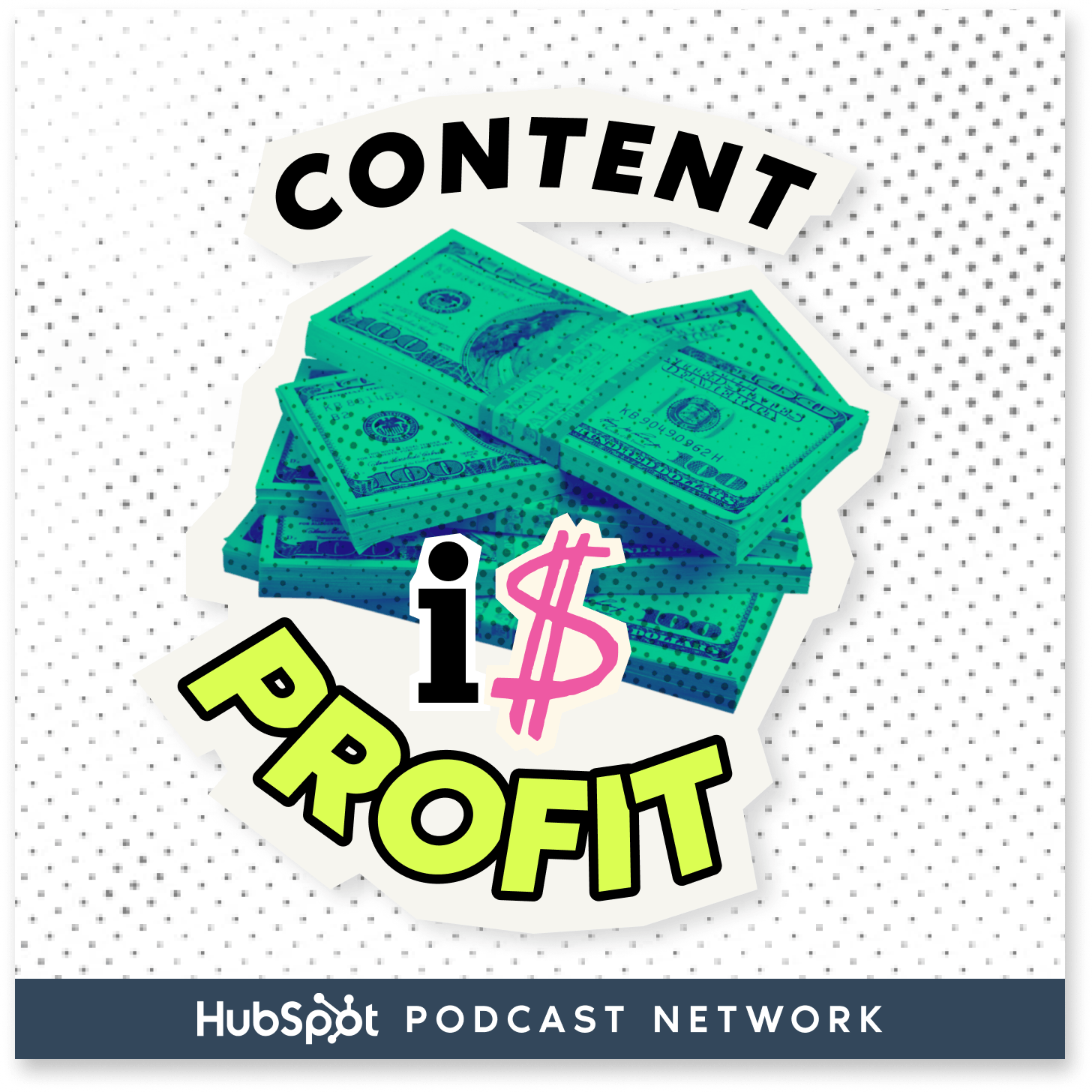
Content Is Profit
BIZBROS
Win The Content Game
Deirdre Tshien - CEO & co-founder of Capsho, AI-powered Content Marketer (the fastest way to repurpose and market your expert content)
Fastlane Founders and Legacy with Jason Barnard: Personal Branding, AI Strategies, and SEO Insights
Jason Barnard Entrepreneur and CEO of Kalicube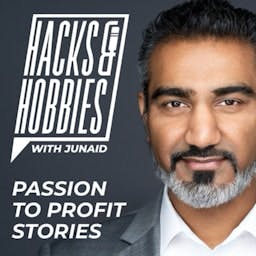
Hacks and Hobbies with Junaid Ahmed
Junaid Ahmed
I Have A Podcast by Vinnie Potestivo
Vinnie Potestivo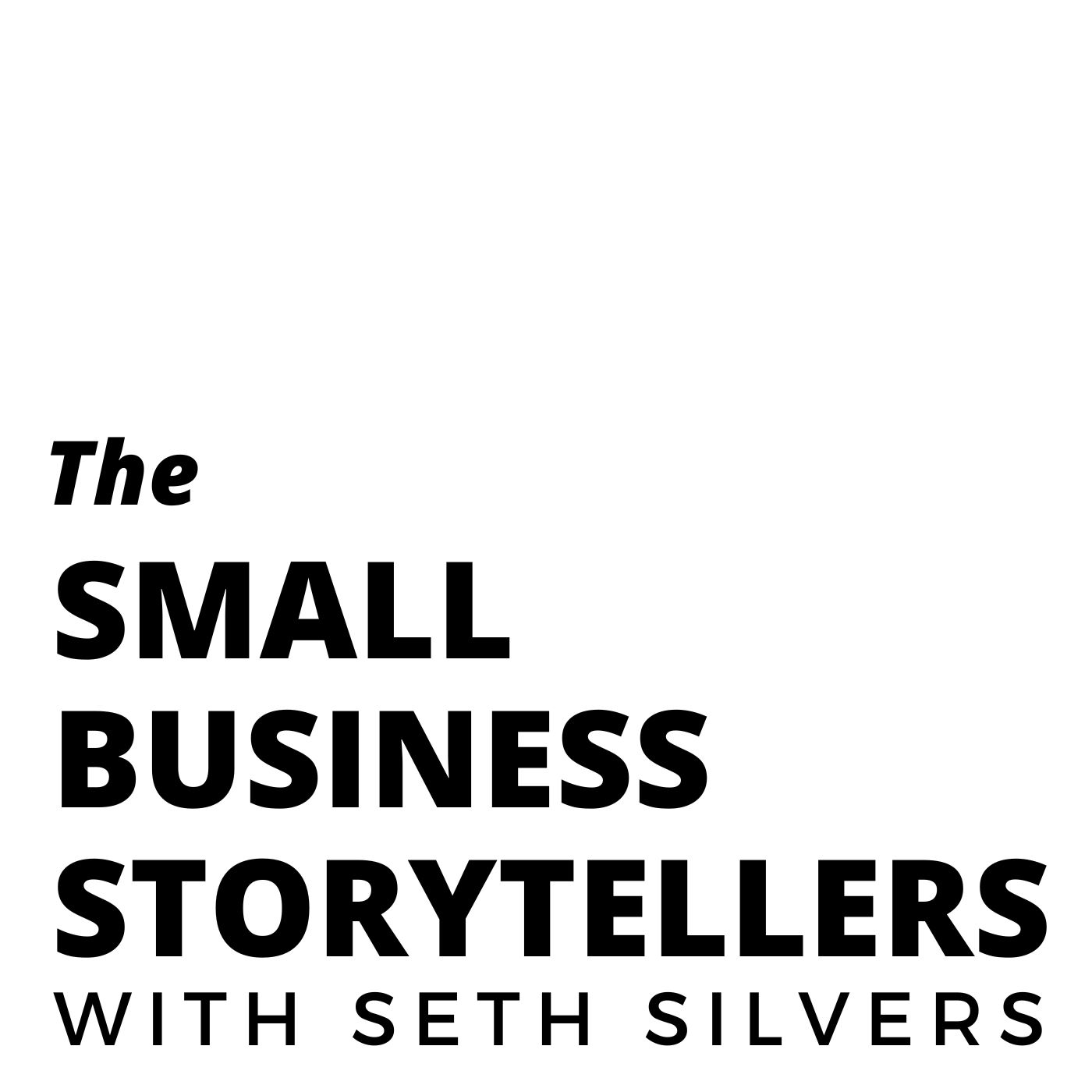
The Small Business Storytellers with Seth Silvers
Seth Silvers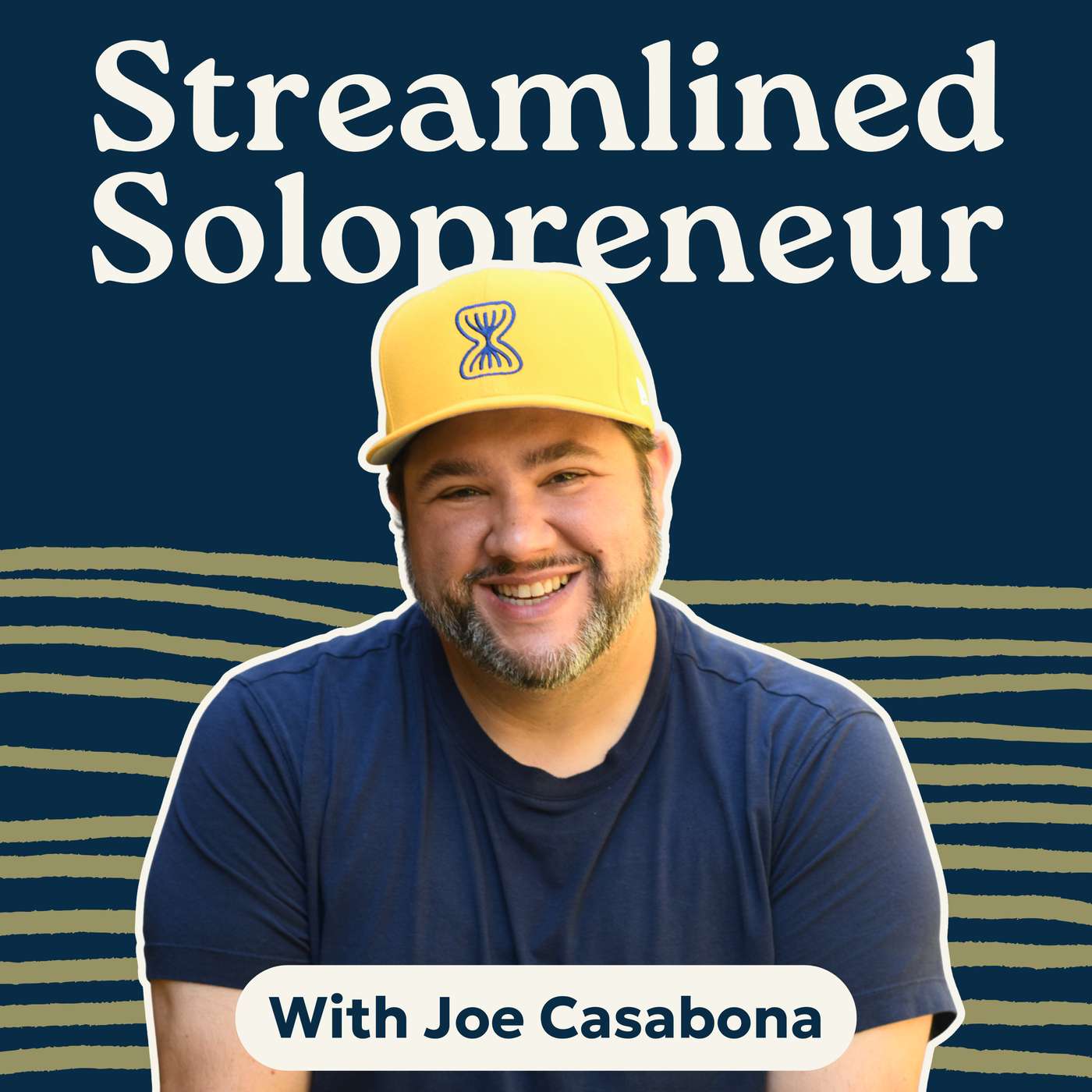
Streamlined Solopreneur: Tips to Help Small Business Owners Grow Without Burnout
Joe Casabona, Business Systems Coach
Insider Secrets to a Top 100 Podcast with Courtney Elmer | Podcasting Strategy for Business Growth
Courtney Elmer | PodLaunchHQ.comDo The Thing
Stacey Lauren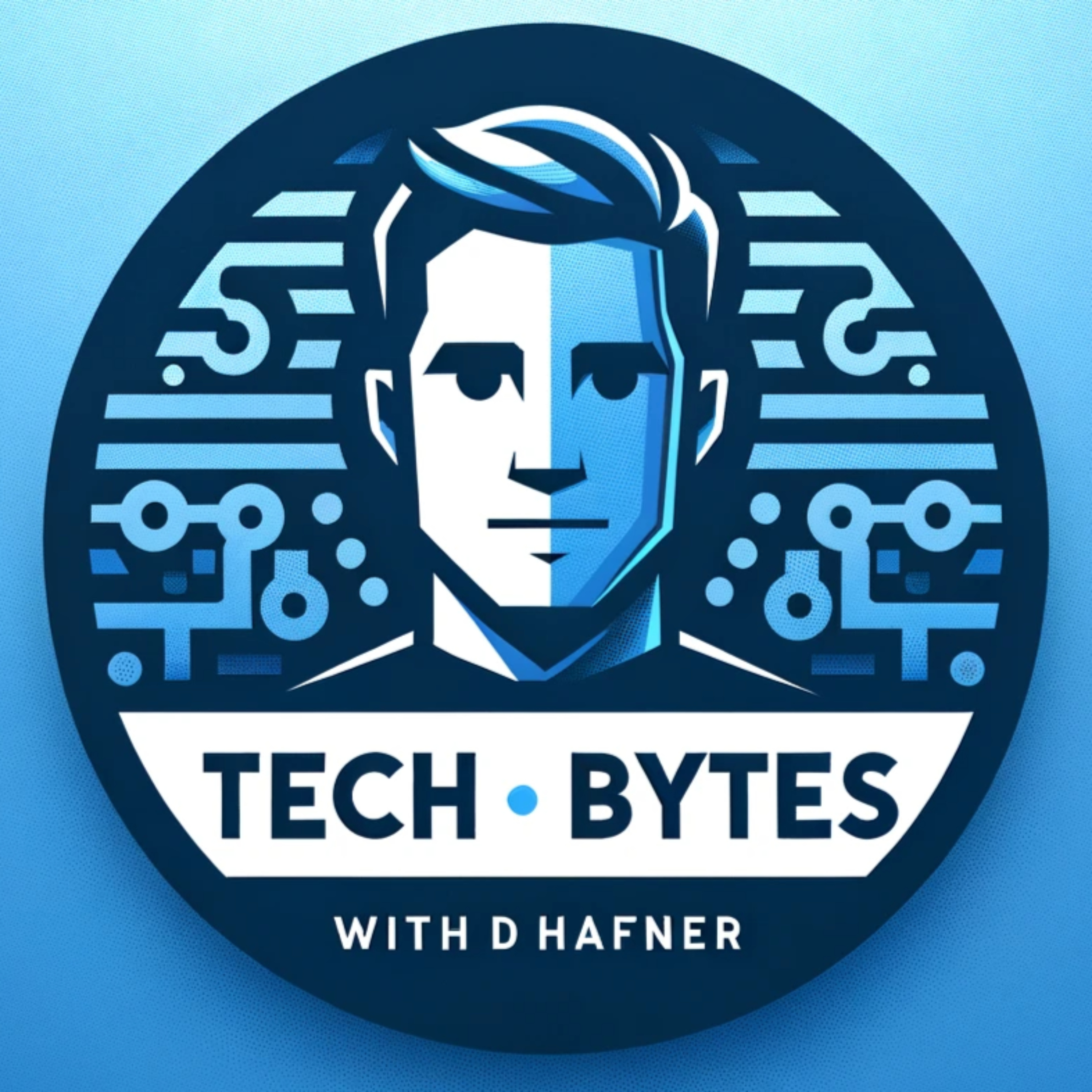
Tech Bytes - with Dan Hafner
Dan Hafner

